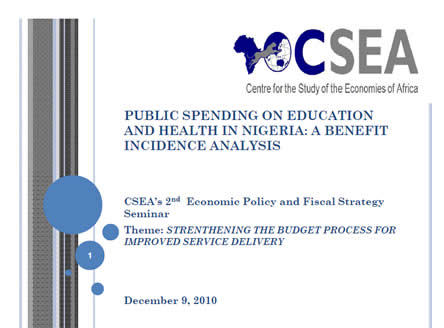OBJECTIVE
- Determine how to answer the question: Is public expenditure in education andhealth sector in Nigeria pro-poor or pro-rich?
BASIC CONCEPT
- BIA as a tool focuses on how government subsidies affect the distribution ofwelfare in the population. It addresses the issue of supply and demand forpublic services and delivers information on efficiency and equity ingovernment allocation of resources for social services and on the publicutilization of these resources. The central idea behind BIA is to gain a betterinsight into how government funds are distributed across differentincome/expenditure groups or if spending is in reality targeted to eitherworse-off or better-off households.
- Commonly used to examine the impact of public expenditure
- Analysis applicable to direct transfers or transfers obtained from consumingsubsidized goods or services
- This is the first attempt to conduct a rigorous BIA in Nigeria on howeffectively the Nigerian government is

